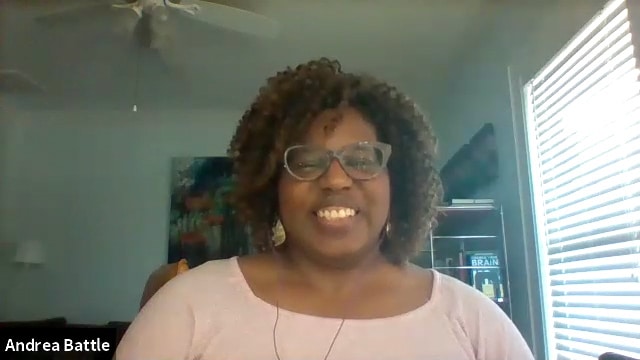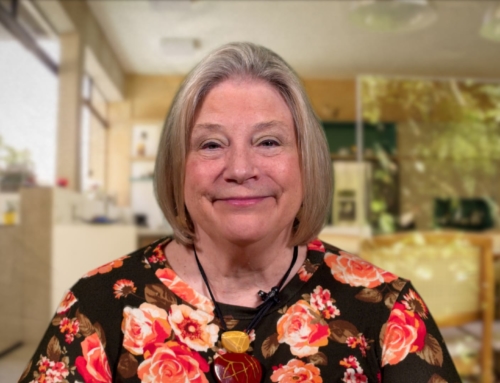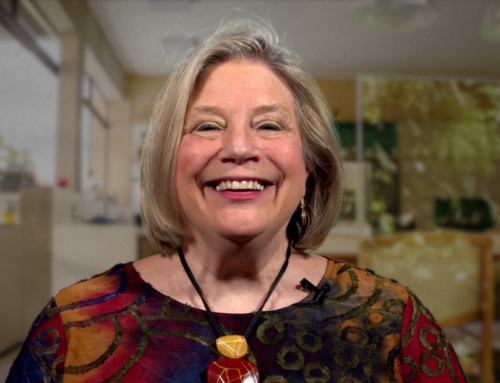In this video interview, Diane talks to Andrea Battle, LPC, who works in tandem with the Houston Police Department in an innovative and collaborative partnership program, Critical Intervention Response Team (CIRT).
CIRT is a co-responder program which partners a masters-level licensed clinician with a Houston CIT (crisis intervention team) officer who ride together in a patrol car and perform roll-call together with the objectives of:
- Assisting officers with CIT-related calls
- Conducting proactive and follow-up CIT investigations
- Responding to SWAT calls when necessary
- Handling the most serious CIT calls
- Andrea explains to Diane how she uses Somatic Experiencing™ and DARe (Dynamic Attachment Re-patterning experience) principles to de-escalate situations involving mental health crises, and simultaneously providing individuals and families with valuable mental health resources.
“If someone told me ten years ago that I would be wearing a bullet-proof vest, I would have said that’s impossible.”
Requirements for Working in CIRT Partnerships
But, because she does respond to calls in dangerous circumstances, she wears a bullet-proof vest for protection alongside her partner, a law enforcement officer. The police who work in the CIT program demonstrate competency in mental health and have a clear understanding of what the mental health code prevents them from doing. They take a 40-hour course for CIT certification and 8-hour update courses each year.
Therapists who work in the CIRT program are seasoned clinicians who are not afraid of running toward dangerous situations rather than away. They also need the type of personality that enables them to spend 40 hours per week in a patrol car with the same person – something we are not all equipped to do! The therapists also need to manage their fear and the presence of danger while keeping the safety of their partner, the individual, and everyone involved as the focus.
In situations that are mental health-related, unnecessary arrests can be prevented when law enforcement and therapists work together on calls. Andrea attends calls related to suicide prevention, homicidal situations, decompensation, family intervention, and community calls. While she does not carry a weapon, she does have an essential role in the law enforcement team.
“It is the partnership that creates the biggest intervention, not just the knowledge that we both bring to the table.”
The goal is either to de-escalate the situation and leave everyone where they are with the resources they need or to provide mental health support in the moment for the individual in need, when appropriate.
Using Somatic Experiencing and DARe Principles in the Field
As a Somatic Experiencing practitioner, Andrea shares how critical it is for her to be present in her own body when she shows up on the scene and to stay aware of the relational field, as it can impact the individual.
Attunement also plays a role in her interactions with the person. Having kind eyes, asking permission, and other invitation-based language help to calm highly activated situations.
If someone is activated, she can use her DARe and SE skills to slow everything down and reassure the individual that she is present for him or her, and they have all the time in the world together, which can help ground them and ultimately lead to a positive resolution.
Using Titration as a Tool toward Resolution
Since people can be highly charged when Andrea arrives on the scene, she uses clinical interventions such as titration to achieve a positive outcome. There was a situation where a wife called for support from the police to try to convince her husband to go to the hospital. He was diagnosed as bipolar and was off of his medication. He refused to move and stated firmly that he didn’t want help. Andrea shares this story:
“Do you mind if I sit in this chair next to you? I think we can help you if you want some help. Can we start by sitting up on the couch? How about standing up? I’m not saying getting into the car, just stand up, and I will stand next to you if that’s ok. Do you mind taking a few steps forward?”
Ultimately, it took 35 minutes to get him to the car, but eventually, he got into the car and arrived at the hospital safely. She found out later that he received the help he needed, and is now doing well.
Andrea does not always receive such follow-up reports on her interventions, but when she does, and the outcome is positive, it’s a celebratory moment for her.
Working with Families and Therapists
Andrea also works with the families of individuals on how to interact with law enforcement.
- How to describe mental health behaviors when calling 911
- Has the person received mental health support in the past?
- Is the person making threatening statements or behaviors?
- Describing the situation to clue-in law enforcement that it might actually be a mental health situation rather than a criminal one
As a crisis intervention specialist, Andrea also works with therapists to teach them how to interact appropriately with law enforcement around:
- Decompensation
- When to talk to law enforcement
- How to get consent
- When the therapist might initiate contact with law enforcement
Where to Find out More about Crisis Intervention Response
This is an invaluable resource for communities, and you might find the process something you’d like to become involved in or help to get more programs like this funded and off the ground in more communities.
The CIRT program in Houston offers alternatives to actually support and treat mental health issues rather than treating each situation like an arrest opportunity. The proper training and therapist/law enforcement partnerships fill in the gaps for many individuals who need mental health services or who are in crisis.
To learn more about CIT, you can visit their website at www.citinternational.com.
You can also learn more about Andrea Battle’s CIRT group by visiting their website.
If you have questions for Andrea, you can reach out to help@dianepooleheller.com and let us know. We can pass the questions along to her and follow up with another interview or blog.
Thank you to Andrea Battle for all of her beautiful and meaningful work in the Houston community and sharing her experience with us. We deeply appreciate Andrea for being a part of this interview to educate communities about potential partnerships between therapists and law enforcement officers to adequately serve our communities and individuals with immediate mental health needs.







